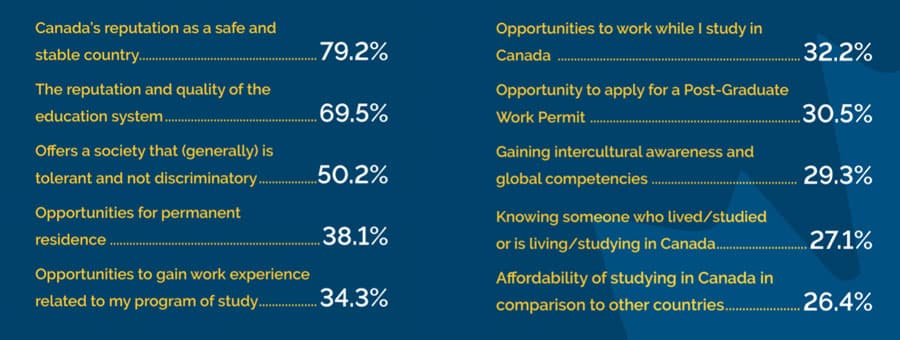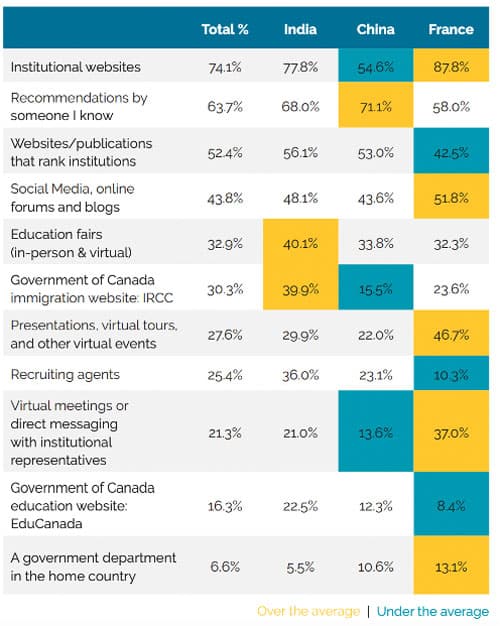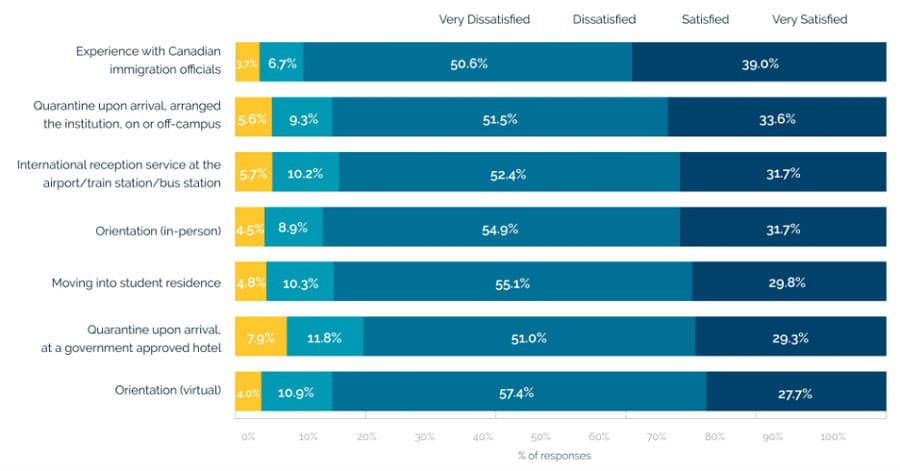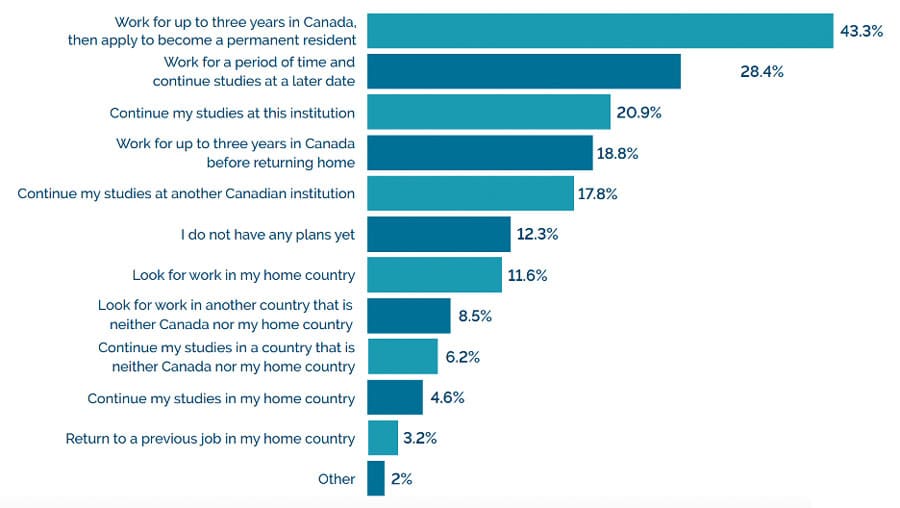Canada’s reputation for safety and quality are top draws for students, survey says
- The sixth instalment of the Canadian Bureau for International Education’s annual student survey reveals high levels of satisfaction among international students coming to Canada
- Challenges and concerns centre on accommodation and the ability to find work
- Canada’s reputation for safety and tolerance is ever-more important to international students
A newly released survey from the Canadian Bureau for International Education (CBIE) sheds light on the challenges and opportunities faced by international students in Canada “from pre-arrival planning through study and post-graduate phases.” Overall, the study shows that Canada’s perceived safety is a major draw for international students, that most students are satisfied with their experience of study in Canada, and that most would recommend the destination to other international students.
This was the sixth year CBIE has run its International Student Survey (ISS), and this year it involved the participation of 67 institutions across Canada. More than 40,000 international students from multiple source countries responded to the survey between October and December 2021.

CBIE is Canada’s international education association whose members include school boards, cégeps, colleges, institutes, language schools, polytechnics and universities.
Canada’s reputation a major factor
The ISS revealed several competitive advantages for Canada in 2022 – the most powerful being its reputation for being safe (79%), followed by the educational quality offered by Canadian post-secondary institutions (69.5%). International students also value Canada’s generally tolerant and non-discriminatory society (50%).
The rankings international students give to safety and tolerance are higher even than those associated with the work/immigration policies that have helped Canada to vault into the top tier of study abroad destinations in recent years, as illustrated in the following screen shot.

Pay attention to that institutional website
We have written extensively about the importance of building student-centric, attractive institutional websites, and results from the ISS underlines that point (see below).The following screen shot also shows how different resources assume different levels of significance according to origin country. For example, Chinese students are highly influenced by peer recommendations relative to Indian or French students, French students are especially likely to consult a school’s website, and Indian students are more likely to look for the advice of agents.

Finding accommodation is a top pre-arrival issue
Destination countries are increasingly struggling to secure sufficient housing for students, and Canada is no exception. Accommodation challenges represent the largest pre-arrival frustration for students coming to Canada. When students were asked (in a different survey question) about their impressions of institutional services once they came to Canada, accommodation issues also figured prominently, with 23% saying they were not satisfied with the help they received from school staff in this area.
The next most cited pre-arrival issues were fee transfers from home countries and study permit challenges.

Students generally satisfied with arrival services
Most surveyed international students were satisfied with their experience of arriving in Canada and settling into campus life. Not even the hassle and strangeness of quarantining in the pandemic elicited much grumbling. At the same time, ISS results indicate that Canadian institutions could do more to welcome students at airports and on-campus, and to help them move into residence – only around 3 in 10 students said they were “very satisfied” with these parts of their student experience. First impressions count for a lot, and they are often sent home to friends and family through videos, pictures, and texts.

Low usage of mental health supports
Throughout the pandemic, research has shown that many international students are experiencing distress in terms of their mental health – but also that many do not access available supports from their institution when they are suffering. ISS findings are in line with that broader body of research. Of surveyed students who said they were aware they could access mental health services, 62% said they never do.
Many experience challenges in finding employment
The third-most cited source of funding among surveyed students – after parents/relatives/guardians (78%) and personal savings (53%) – was off-campus work income (33%). That means that a significant segment of students coming to Canada need to work to fund their studies. Yet 43% of surveyed students who had worked or were working in Canada said they had had difficulty finding employment. The report notes that,
“A significant number of student respondents attributed their difficulties finding work to their inability to understand the expectations of Canadian employers and to their prospective employers being unfamiliar with regulations for hiring international students.”
CBIE says,
“These findings point to where institutions can play a more proactive role, which might include institutions providing expanded job readiness training for international students and ensuring a gender focus in this training. Institutions may also consider increased outreach to employers and community groups about how to hire international students or develop information products on hiring rules that international students can share with prospective employers.”
Post-graduation intentions
International students have long-term plans in Canada when they choose to study there. More than 4 in 10 want to work and then immigrate; more than a quarter want to work, then continue to further studies; 1 in 5 plan to keep studying at their Canadian institution; and 18% intend to work in Canada for three years before returning to their home country.

Highlighting the huge importance of the PGWP (Post-Graduate Work Permit) to Canadian institutions’ recruitment arsenal, close to three-quarters of the more than 40,000 international students surveyed for the ISS plan to apply for this permit to allow them to seek employment in Canada for up to three years. Another 6 in 10 (59.4%) intend to apply for permanent residency.
For additional background, please see:















